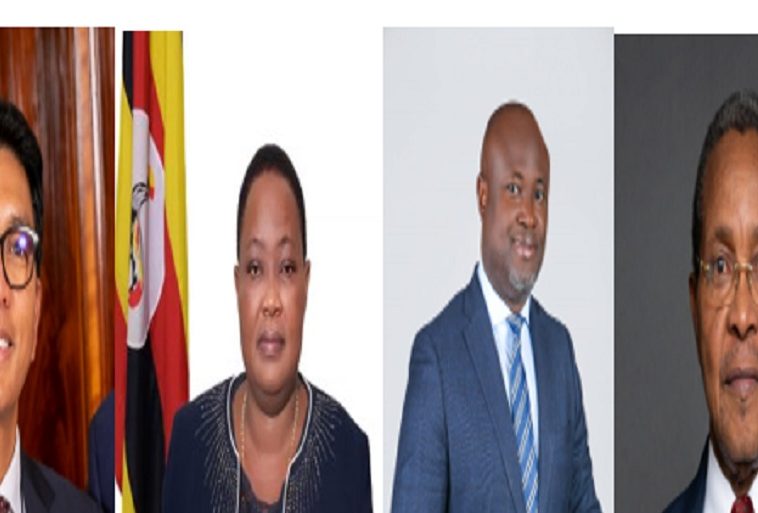Across the world, a silent battle is unfolding. Not with guns or street protests, but in cyberspace, courtrooms, and government backrooms. Digital authoritarianism, the use of technology to surveil, control, and limit civic freedoms, is an escalating global concern.
While many governments embrace digital transformation, some simultaneously enact policies and deploy technologies that threaten internet freedom, privacy, and democracy. This trend raises critical questions about governance, security, and technology’s role in shaping the future of global society.
READ ALSO: Africa’s Digital Economy Empowering Innovation and Development
The digital revolution has been a game-changer worldwide. As of 2024, an estimated 5.5 billion people(68% of the global population) were online, up from 5.3 billion the previous year. This explosion in digital engagement has driven e-commerce, online entrepreneurship, and government-led digital initiatives aimed at improving governance and economic growth. However, this rapid expansion has also paved the way for policies that curtail freedom and human rights.
A review of global digital governance trends reveals a concerning pattern: the creeping influence of digital authoritarianism. Internet shutdowns have become a common political tool, with governments implementing over 400 shutdowns between 2019 and 2023, affecting millions. According to Surfshark’s 2024 report, 63 new internet restrictions were imposed across 17 countries, impacting 2.6 billion people, a 4% increase from 2023. Protests were the leading cause, accounting for 50% of all shutdowns, with Asia and Africa being the hardest-hit regions. India and Mozambique led in new restrictions, highlighting the growing use of internet shutdowns to suppress dissent. Countries such as Russia, China, India, and Ethiopia have used shutdowns during elections, protests, and political crises, often under the guise of national security, yet in practice, they limit access to information and stifle opposition.
Cybercrime laws and online censorship are also being weaponised to silence dissent. While such laws are necessary to combat digital fraud and misinformation, some governments exploit them to suppress free speech. China’s Great Firewall remains one of the world’s most extensive internet censorship systems, restricting access to information and controlling public discourse. Russia has enacted stringent laws to curb digital dissent, while India’s new Information Technology Rules have raised concerns about government overreach in regulating online speech.
Mass surveillance and data privacy violations present another pressing challenge. Governments increasingly adopt surveillance technologies, including facial recognition and biometric databases. In the United States, the NSA’s mass surveillance programmes have sparked fierce debates over privacy rights. In the European Union, despite stringent GDPR regulations, concerns persist over AI-driven surveillance by law enforcement. In Africa, Kenya’s Huduma Namba digital ID project has been criticised for data privacy risks and the potential misuse of citizens’ information.
A crucial yet often overlooked factor in digital authoritarianism is the role of foreign technology providers. Chinese firms such as Huawei and ZTE have been linked to the installation of surveillance networks in countries including Zambia and Uganda. Meanwhile, American companies have faced scrutiny for selling surveillance software to regimes known for human rights violations. These technologies are frequently deployed to monitor political opponents and suppress protests, raising serious concerns about external influence on digital governance.
National Security vs. Civic Freedoms
Governments argue that these measures are necessary to combat cyber threats, misinformation, and terrorism. With the rise of online radicalisation and cybercrime, robust digital governance is essential. However, the challenge lies in balancing security and democratic freedoms. Blanket internet shutdowns, unchecked surveillance, and restrictive laws often do more harm than good, eroding public trust and stifling innovation.
Learning from World Leaders
Digital governance is a global issue, and different nations have taken varying approaches. Countries across Asia, Africa, Europe, and Latin America have faced similar dilemmas, yet some have managed to balance security and democracy effectively. Taiwan, for instance, has leveraged technology to enhance transparency and strengthen data protection laws, serving as a model for open governance. Policymakers worldwide can draw lessons from such approaches to build accountable, citizen-centred digital policies.
To prevent the unchecked rise of digital authoritarianism while ensuring national security, governments must adopt a more inclusive, rights-respecting approach to digital governance. Strengthening data protection laws is crucial to safeguarding citizens from unauthorised surveillance and data breaches.
Digital literacy and awareness programmes should be promoted to educate citizens on their rights and safe online engagement. Multi-stakeholder collaboration—where governments, civil society, and the private sector work together—is essential for crafting balanced digital policies. Judicial oversight must be reinforced to prevent the misuse of cyber laws, ensuring legal frameworks serve the public interest rather than political agendas. Additionally, regional and global cooperation is vital for establishing international norms that protect digital rights while maintaining security.
A Call for Digital Freedom Globally
The world stands at a digital crossroads. Nations have the opportunity to harness technology for good, driving economic and social progress. However, if digital tools are weaponised against citizens, the long-term consequences could be dire for democracy and human rights. The battle against digital authoritarianism is not solely a governmental issue—it requires collective action from civil society, businesses, and individuals to shape the future of digital governance. The time to act is now.




